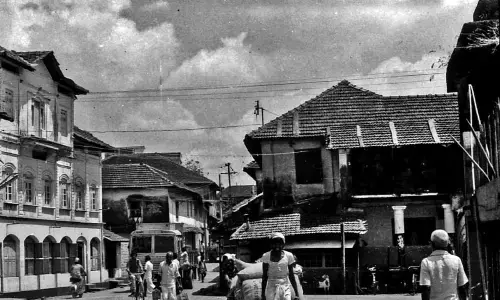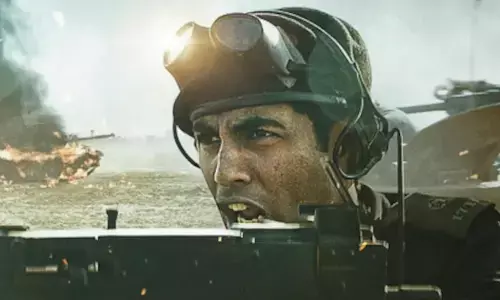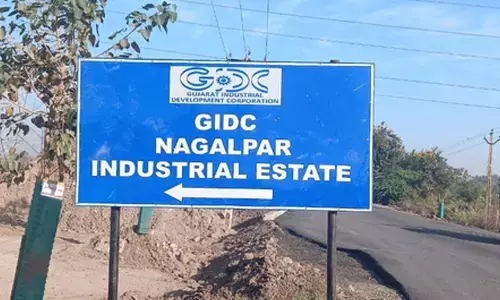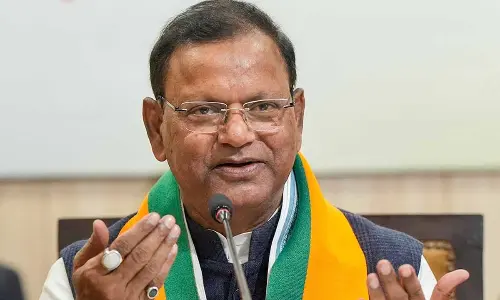The ongoing civil war in Syria has a serendipitous effect on global political scenario, in general, and relations between Russia and the US, in particular. The Big 2 which have never agreed on issues pertaining to their allies have come together to secure a deal on disarming Syria of its chemical weapons. The agreement they reached last Saturday in Geneva was historic in many ways and pushed Russian President Vladimir Putin to the forefront on the world stage.
In the last few decades, the US has been cutting or scuttling deals in global hotspots, never giving any space to Russia to enter and play a key, if not equal, role. That is more evident in Arab and Middle East affairs. Moscow’s role in Israeli-Palestinian quest for peace or in efforts to end civil strife in volatile and oil-rich region is negligible. Similarly, both in Afghanistan and Iraq, Russia’s one-time allies, America and its European backers had made the areas of conflict out of bounds for the Kremlin.
In other words, Russia has been restricted to using its veto power at the United Nations to express its resentment against West and denouncement over its actions. Now, the Geneva accord has catapulted Russia and its strongman Putin into limelight, almost overnight. At home and abroad, President Putin is being hailed as a hero and a statesman for checking American adventurism in Mideast. And, for the Syrian government of President Bashar Al Assad, he is a saviour since he had managed to stop Obama and his forces in their tracks before launching missile strikes against suspected chemical weapons sites and manufacturing facilities.
Soon after last month’s alleged chemical attacks on the civilian population near Syrian capital city Damascus, in which hundreds were killed and injured, the US was battle ready for limited strikes on Syria to destroy the chemical arms stockpiles. But action was delayed, pending Congressional approval and a UN report. The break, or the pause Obama had taken to move swiftly against Syria, has given Putin a golden opportunity to pole-vault himself into the arena armed with a deal that has found an all-round agreement, except the Syrian rebels, who have been fighting for over two years to overthrow the Bashar regime, and applause for Putin. His popularity has risen so much that he has become a serious contender for Nobel Prize.
More importantly, Putin is credited with checkmating Obama on the Syrian Front and his plan to attack Syria has been put on hold indefinitely, at least for two more months. That is, until the UN gets all the details about Syria’s chemical weapons and their storage and Damascus response to international experts’ visits to check the armament units. Meanwhile, the Obama administration has to watch the ascendancy of Putin in global affairs as he is going to play a key role in the Syrian crisis, perhaps in the Middle East. The Russo-American deal may also herald a new era in mutual arms reduction steps the two powers have been negotiating for years.
As of now, it appears there is broad agreement between the Big 2 over dealing with Syria. The accord has called for Syria’s arsenal of chemical weapons to be removed or destroyed by the middle of next year. If Syria fails to comply with the pact, the issue would be referred to the UN Security Council which can authorize punitive action under relevant clauses of the UN Charter.
Under the “Framework for Elimination of Syrian Chemical Weapons”, an inspection of the chemical weapon sites identified by the Syrian government and their destruction, including equipment and stocks of poison gases, must be completed by November and all other related labs and facilities eliminated by the first half of next year. Although the agreement has included the UN Security Council in taking possible international action if the Assad regime fails to abide by the terms and conditions of the deal, Russia still opposes unilateral American action while the US insists on its earlier resolve.
.jpg)
But for the nitty-gritty differences, the overall US-Russian ‘understanding’ should augur well. However, some questions have remained unanswered. While welcoming it, Syria has not said that it will follow the accord in letter and spirit and it is not a signatory to chemical arms ban protocol, although UN chief Ban Ki-moon has said that Damascus has expressed its willingness to sign the treaty before an inspection team goes there. Secondly, the UN inspectors need full cooperation from the Syrian government before and after embarking on their mission. Otherwise, their work would be incomplete like in the case of Iraq during the Saddam Hussein rule. Thirdly, the reprieve the Bashar government has got would enable it to move the stockpiles to safer places. Fourthly, even if Syria decides to get rid of all chemical arms, said to be about 1,000 tonnes, it doesn’t have the necessary wherewithal to destroy them safely. It needs technical expertise and the cost runs into billions of dollars.
The test of Syrian willingness to abide by the joint US-Russia deal comes when Damascus has to submit a list of chemical agents it uses in arms production, where they are manufactured, etc. to the UN. That will be critical for the implementation of the agreement and it will be the first step towards a comprehensive work programme. Will Syria do it is a million dollar question. Under Moscow goading, it may. But a miscalculation can bring the situation back to square one.
Meanwhile, the Syrian opposition and rebels are the unhappiest lot for ignoring their interests. Their claim that the chemical weapons used last month were those used by government forces would come under scrutiny once the UN starts deep probe into the incidents. The preliminary report submitted to the world body by an experts’ team has merely said that chemical weapons had been used on civilians without apportioning blame. Either way, Syria will be under watch.

.jpg)














